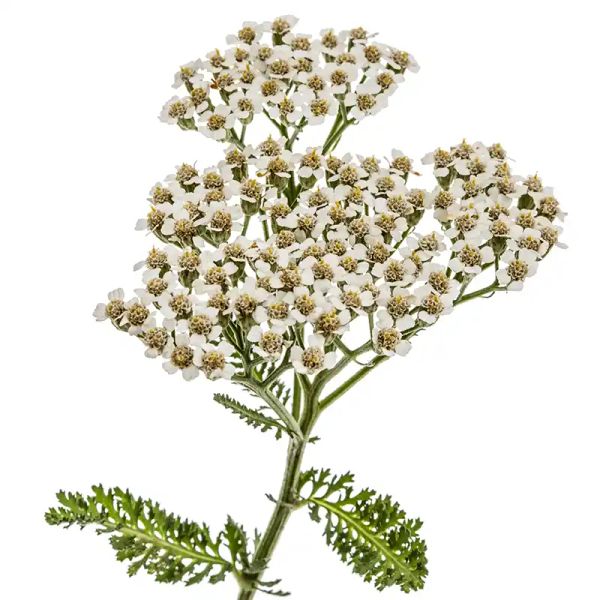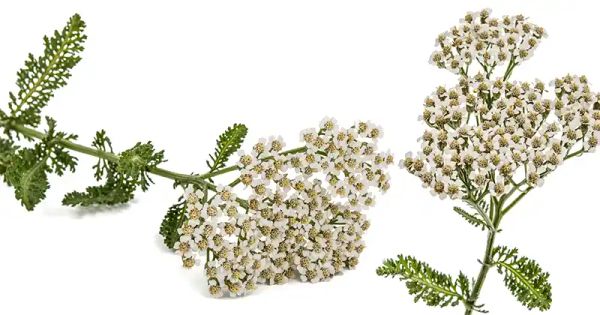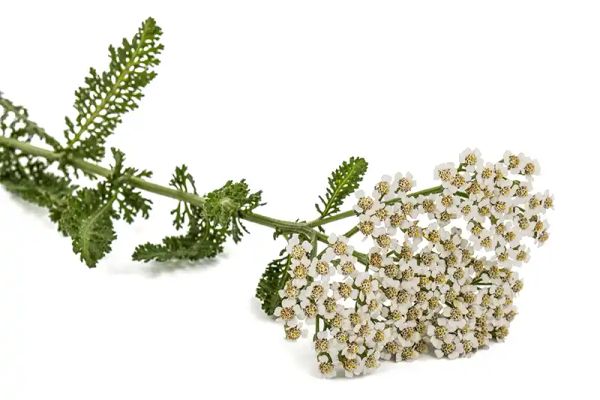Yarrow, a perennial herb known as Achillea millefolium, has been prized for centuries for its medicinal properties and numerous health benefits. This versatile plant has a rich history of being used to heal wounds and reduce fevers, and it continues to be valued in holistic health practices today.
Yarrow can be found growing wild in meadows and grasslands all around the world. It is characterized by its delicate feathery leaves and clusters of white or pink flowers. In this article, we will explore 15 remarkable benefits of yarrow and how you can incorporate it into your daily life to improve your health and well-being.
15 Health Benefits of Yarrow
1. Wound Healing
Yarrow possesses powerful anti-inflammatory and astringent properties that can accelerate the healing process of wounds. Applying yarrow to cuts and bruises helps promote blood clotting and reduces the risk of infection.
2. Digestive Aid
Yarrow is known for its ability to alleviate digestive discomforts such as bloating, indigestion, and cramps. Its stimulating effect on bile flow makes it effective in improving digestion and relieving gas.
3. Menstrual Support
For ages, women have turned to yarrow to alleviate menstrual pain and regulate their cycles. Yarrow’s antispasmodic properties help relieve cramping, while its hormone-balancing effects make it a natural choice for easing heavy periods.
4. Reduces Fever
Traditionally, yarrow has been used to induce sweating, which helps break fevers during colds and flu. Its diaphoretic action encourages the body to release heat and toxins.
5. Anti-Inflammatory
Yarrow contains flavonoids and tannins that exhibit strong anti-inflammatory properties. This makes it useful for treating conditions such as arthritis, joint pain, and skin irritations.
6. Blood Pressure Regulation
Research has shown that yarrow can help lower high blood pressure. Its vasodilating effects relax blood vessels, improving circulation and reducing the risk of hypertension.
7. Improves Circulation
Yarrow can enhance circulation throughout the body by dilating blood vessels and reducing blood viscosity. This promotes overall cardiovascular health.
8. Antiseptic Properties
Yarrow’s rich compounds possess antibacterial and antiseptic qualities. Applying it topically to minor wounds, burns, and skin infections helps prevent bacterial contamination.
9. Supports Respiratory Health
Yarrow helps relieve congestion and inflammation in the respiratory system. Its expectorant properties make it useful for clearing mucus from the lungs, aiding in the treatment of colds, bronchitis, and asthma.
10. Detoxifies the Body
Yarrow supports detoxification by inducing sweating and increasing urine production. This helps the body eliminate excess fluids and toxins.
11. Relieves Anxiety and Stress
Yarrow has a calming effect on the nervous system. Drinking yarrow tea can ease stress, anxiety, and tension, promoting a sense of calm and well-being.
12. Boosts Immune Function
Containing antioxidants, yarrow can strengthen the immune system, helping the body fight off infections. Regular consumption can enhance the immune response, making it an ideal ally during cold and flu season.
13. Skin Health
Yarrow has the ability to soothe inflamed skin and reduce acne breakouts. Its astringent properties help tone and tighten the skin, improving overall texture and reducing pore size.
14. Helps Treat Varicose Veins
Yarrow is often used to manage varicose veins due to its ability to improve circulation and reduce inflammation. This helps minimize pain and reduces the appearance of swollen veins.
15. Aids in Weight Management
Yarrow supports metabolism and encourages the elimination of excess fluids, making it useful in weight management. It promotes digestion and detoxification, essential for maintaining a healthy weight.

How to Use Yarrow
There are several ways to incorporate yarrow into your daily routine:
Tea: One of the most common ways to consume yarrow is by making a tea. Simply steep dried yarrow flowers in hot water for 10-15 minutes. Drink up to three cups daily to experience its health benefits.
Tincture: Yarrow tinctures can be taken in small doses (around 10-15 drops) under the tongue or diluted in water. Tinctures provide a concentrated form of yarrow’s active compounds and are especially effective for digestive or menstrual issues.
Poultice: For wound healing, you can make a yarrow poultice by crushing fresh yarrow leaves and flowers and applying them directly to cuts, bruises, or inflamed areas.
Salve: Yarrow-infused oils and salves can be applied topically to the skin for conditions like eczema, rashes, or varicose veins.
Essential Oil: Yarrow essential oil can be added to baths or diluted in a carrier oil for massages. Its anti-inflammatory and antiseptic properties make it a great addition to skincare routines.
Disclaimer
While yarrow is generally safe for most people, some individuals may experience allergic reactions, especially those allergic to plants in the Asteraceae family (like daisies or chrysanthemums). Pregnant and breastfeeding women should avoid using yarrow, as it can stimulate uterine contractions. It is always advisable to consult a healthcare provider before starting any herbal remedy, particularly if you are on medication or have a chronic health condition.
Conclusion
Yarrow is a versatile herb with an impressive range of health benefits. Whether you choose to enjoy it as a tea, tincture, or topical application, incorporating yarrow into your wellness plan can enhance your overall health and well-being. Just remember to use it wisely and seek professional advice if needed.





